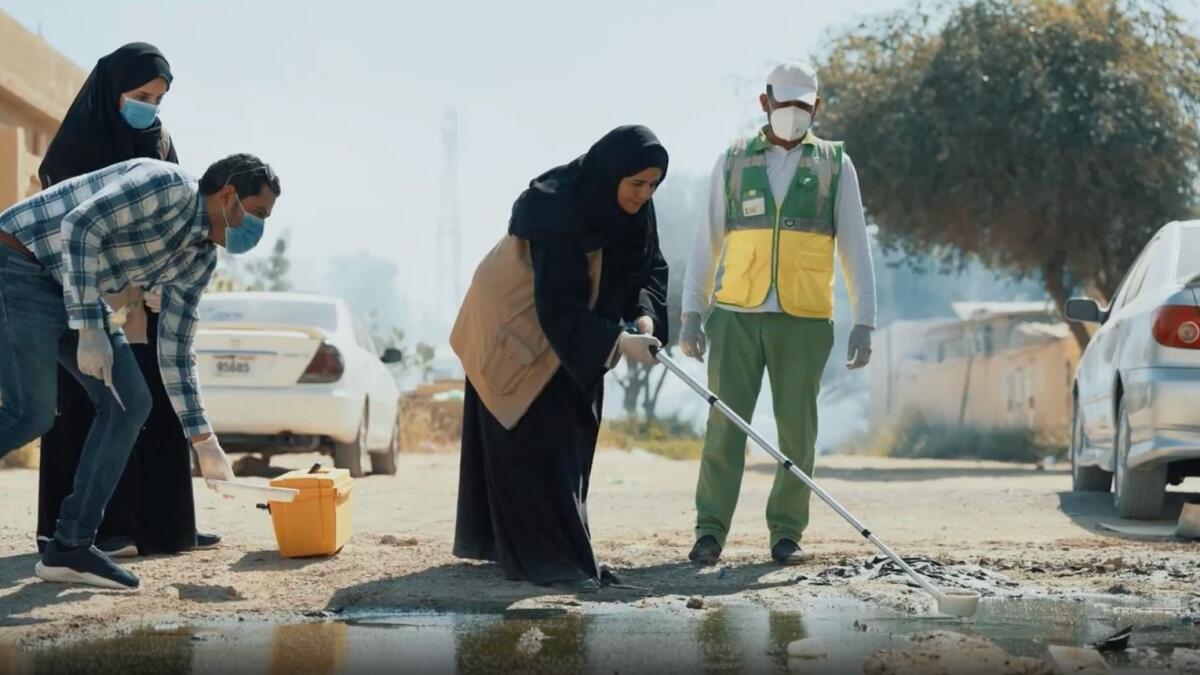The Ministry of Climate Change and Environment (MoCCAE) in the UAE has announced plans to intensify efforts to eradicate mosquito breeding hotspots and minimize mosquito infestation in various locations across the country. This decision comes after heavy rainfall in the region increased the risk of mosquitoes proliferating in stagnant water and damp areas. As part of the third phase of the Anti-Mosquito Campaign, the Ministry of Health and Prevention and the Emirates Health Services (EHS) are actively promoting awareness about diseases transmitted by mosquitoes and how to prevent them.
The MoCCAE stated that they will be using cutting-edge international technologies with the highest standards to control mosquitoes, with special attention directed towards areas where mosquitoes are prevalent, such as water pools. The ministry has also called on community members to collaborate with local authorities in facilitating mosquito control efforts. Residents are urged to report any sightings or breeding locations of mosquitoes by calling the MoCCAE call center. Locations that are subject to investigation and control measures include construction sites, stables, schools, farms, gardens, parks, residential areas, race tracks, and damp areas due to water accumulation.
To prevent and limit the spread of mosquitoes, the public can help by eliminating stagnant water in irrigation basins, swimming pools, and fountains by either drying, covering, or moving them regularly. The Ministry will provide comprehensive information, guidance, and support to the community through various communication channels. The Ministry also assured that all materials used in mosquito control exclusively target mosquitoes and are not harmful to humans and animals. It is also emphasized the importance of repairing water leaks, which serve as primary breeding grounds for mosquitoes, and maintaining cleanliness in areas where rainwater accumulates.
The MoCCAE highlighted the vital role of national collaboration in tackling biological challenges and safeguarding society on all fronts. HE Dr. Saif Juma Al Dhaheri, Director of the National Operations Centre at NCEMA, stressed the importance of close cooperation among relevant authorities at both national and local levels to comprehensively address health hazards. The current drive is part of the third phase of the national anti-mosquito campaign, launched by MoCCAE in February 2022, and will continue until May 2025.
In conclusion, the UAE is taking proactive measures to control mosquito infestation and prevent the spread of diseases transmitted by mosquitoes. By utilizing advanced technologies and collaborating with the public, the government aims to minimize mosquito breeding hotspots and ensure the safety of residents. The Ministry is committed to providing comprehensive information and support to the community to effectively manage the spread of mosquitoes across various regions. Through national collaboration and close cooperation among relevant authorities, the UAE is working towards addressing health hazards and safeguarding society on all fronts during the anti-mosquito campaign.











